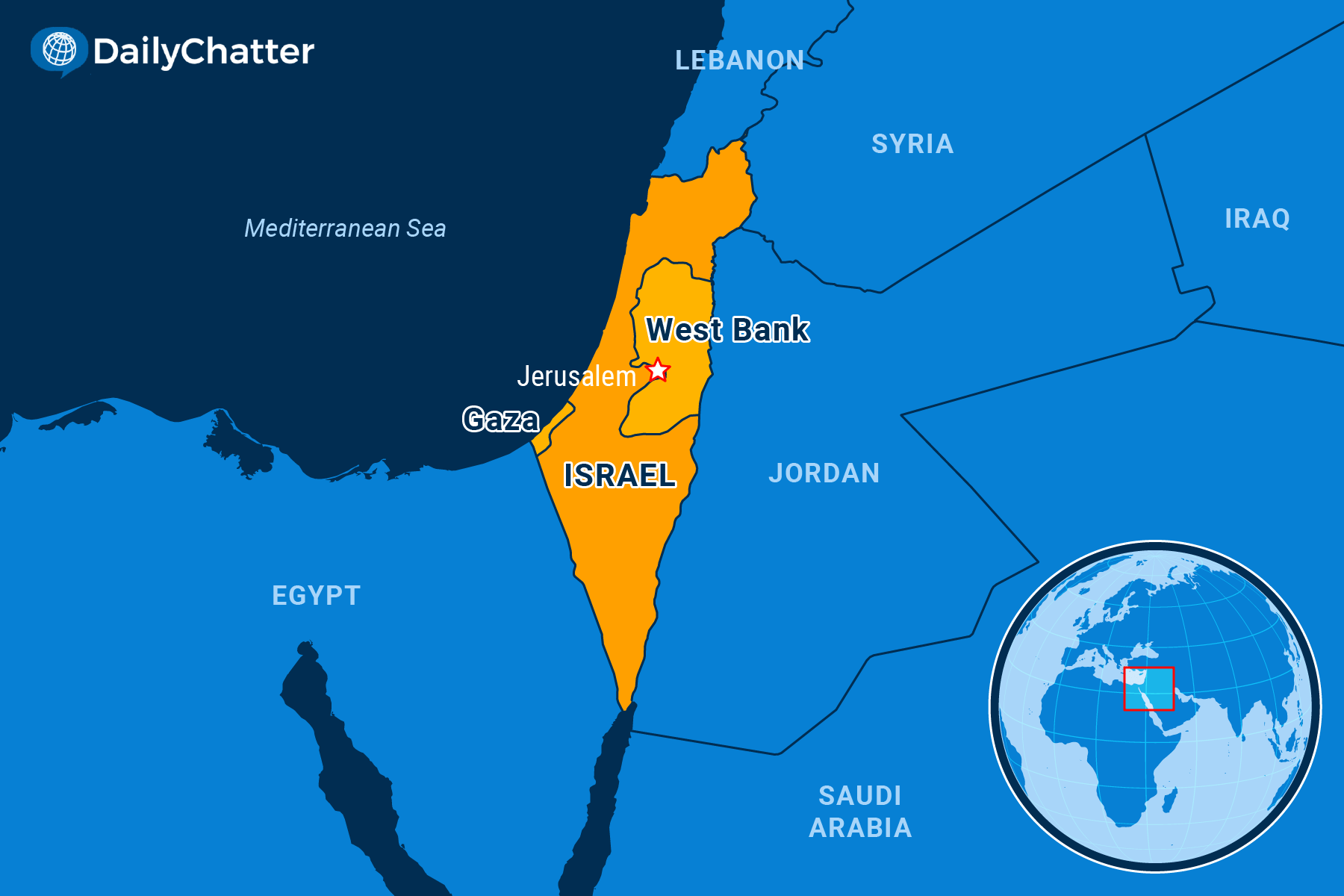The World Briefly
October 10, 2023Shock and Awe
GazaIsrael

|
Listen to Today's Edition
|
The Israeli government ordered a “complete siege” of the Gaza Strip and mobilized hundreds of thousands of reservists Monday, just two days after Hamas militants launched a surprise, large-scale attack and set off what has been described as the deadliest conflict inside Israel since 1948, the Financial Times reported.
Israeli tanks and drones were deployed to guard breaches in the Gaza border fence to prevent new incursions, the Associated Press reported. Thousands of Israelis were evacuated from more than a dozen towns near Gaza, and the military summoned 300,000 reservists — a massive mobilization in a short time.
Meanwhile, Defense Minister Yoav Gallant announced Monday that “no electricity, no food, no water, no fuel” would be allowed into Gaza, which is home to about 2.3 million people.
The recent escalation follows a highly coordinated surprise attack by more than a thousand Hamas fighters – by land, sea, and air – over the weekend. The Palestinian militants pushed through the border with Gaza, sometimes with bulldozers, during the Jewish Simchat Torah holiday, attacking a number of nearby villages and towns, and an open-air music festival where many revelers were shot at point-blank range, according to videos.
Meanwhile, Israel’s vaunted military and intelligence apparatus was caught completely off guard by Hamas, resulting in heavy battles in its streets for the first time in decades.
So far, more than 1,200 people have died, with Israel saying at least 700 civilians and soldiers have been killed on their side. For the Palestinians, Gaza officials said around 560 people died following Israeli retaliatory strikes on the Mediterranean enclave over the past few days.
The death toll is expected to rise, however, and Israeli officials have warned of a protracted conflict as they seek to decisively defeat Hamas, which has ruled Gaza for over 15 years.
“I ask that you stand steadfast because we are going to change the Middle East,” said Israeli Prime Minister Benjamin Netanyahu.
So far, Israel’s response has included airstrikes, artillery bombardment, and ground operations in Gaza, targeting Hamas infrastructure. This has raised concerns about the humanitarian situation in the enclave, with the United Nations reporting that nearly 125,000 people in Gaza have been displaced since the outbreak of hostilities, worsening the humanitarian crisis in the region because civilians in the enclave cannot leave.
Meanwhile, the European Union responded to the situation by putting Palestinian development financing under review, affecting more than $728 million in aid. The conflict has disrupted daily life in Israel, with flights being canceled, and schools being closed.
Currently, the Israeli Defense Force (IDF) said they have gained “full control” over communities in southern Israel, but noted that the border is not fully sealed and that “terrorists still have the ability to invade this country.”
Meanwhile, after IDF officials announced the mobilization of the reservists, describing it as the largest call-up in the country’s history, they added that not all soldiers would be sent to the Gaza border, but that the military was “going on the offensive.”
While some analysts suggested that a land invasion into Gaza is imminent, others warned that the kidnapping of at least 150 Israelis who were moved into the area could complicate Israel’s offensive, the Los Angeles Times noted.
In the past, Israel has resisted a ground war in Gaza despite provocations because officials feared intensifying casualties. However, the surprise attack and a death toll unseen since the 1973 war with Egypt and Syria have led to calls to crush Hamas no matter the cost.
Israel is run by its most hard-right government ever, dominated by ministers who adamantly reject any form of Palestinian statehood.
At the same time, Hamas says it is ready to fight to end an Israeli occupation it says is no longer tolerable. Desperation has grown among Palestinians, many of whom see nothing to lose under unending Israeli control and increasing settler expansion and violence in the West Bank, the blockade in Gaza, and what they see as the world’s apathy, the Associated Press said.
Meanwhile, the fighting has the potential to become a wider regional conflict after militants from Hezbollah, an Iranian-backed militant group in Lebanon, launched attacks “in solidarity” with Palestinians.
The Wall Street Journal reported that Iranian security officials helped plan Hamas’s Saturday attack on Israel and gave the green light for the assault at a meeting in Beirut last Monday.
According to US officials, Iran was worried about Israel’s possible rapprochement with Saudi Arabia. It has already established ties over the past few years with other Gulf states.
Not already a subscriber?
If you would like to receive DailyChatter directly to your inbox each morning, subscribe below with a free two-week trial.
Support journalism that’s independent, non-partisan, and fair.
If you are a student or faculty with a valid school email, you can sign up for a FREE student subscription or faculty subscription.
Questions? Write to us at hello@dailychatter.com.

